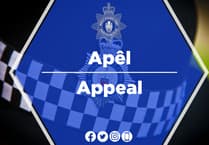The coastguard was called at 2.28pm on Saturday, 9 July, becuase two paddleboarders were struggling to make it back ashore against an offshore wind.
The D-class inshore lifeboat launched at 2.44pm with three volunteer crew on board and reached the location - off West End Beach, Pwllheli - at 2.28pm to find the two female paddleboarders had been towed safely to shore by a passing boat.
While still in the area, the crew observed a young female on a paddleboard struggling in the water. The crew offered assistance and towed the paddleboard to shore.
The D-class lifeboat was refuelled and ready for service at 3.25pm.
RNLI Pwllheli D-Class inshore lifeboat Helm, Mark Dale, said: “The original casualties had fortunately already been helped to shore but we were then able to assist a female paddleboarder who was struggling to make headway against the off-shore wind, back to shore. This does highlight the need to check the wind direction and tides before paddleboarding.”
The RNLI has revealed that they saved the lives of 42 people last year after they got into trouble while paddleboarding, kayaking and canoeing. Samantha Hughes of the RNLI’s Water Safety team said: “Paddleboarding, kayaking and canoeing are all extremely popular and the RNLI has seen a large increase in our lifeboats and beach lifeguards going to the aid of people involved in these kinds of activities over the past few years.
“That’s why it’s important to be aware of some simple safety advice which could save your life. If you are heading out on the water, we would always advise you to wear a suitable personal flotation device for your activity. If you are on a paddleboard, choose the right releasable leash for the location you are paddling.
“Always check the weather forecast and tide times as this can affect your paddling and always tell someone where you’re going and when you’ll be back. “Keep a means of calling for help attached to you in a waterproof pouch or close to hand so that in an emergency you can call 999 and ask for the Coastguard if at the coast, or the Fire Service if inland.
“If you get into trouble in the water, remember to Float to Live: lean back, using your arms and legs to stay afloat. Control your breathing, then call for help or swim to safety.”




